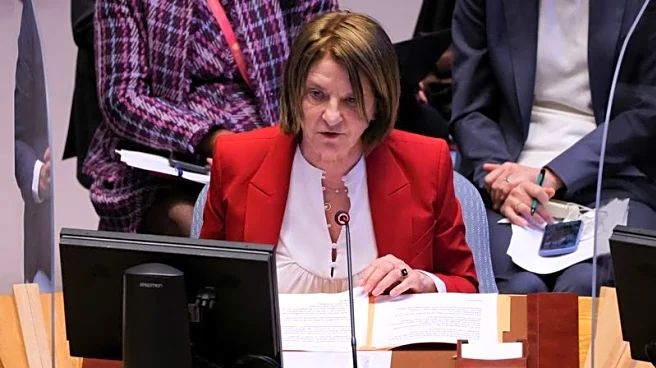What's Happening?
Hossam al-Astal, a leader of an anti-Hamas militia, has expressed support for former UK Prime Minister Tony Blair in efforts to establish governance in Gaza following the anticipated end of Hamas control. Al-Astal has reportedly liberated an area from Hamas occupation, creating a 'safe city' in Khan Yunis. This development comes amid ongoing efforts to secure a ceasefire and transition to stable governance in Gaza. Blair's involvement suggests a focus on international collaboration to rebuild and stabilize the region.
Why It's Important?
The support from Hossam al-Astal for Tony Blair indicates a potential shift in power dynamics within Gaza, as local leaders align with international figures to promote governance and stability. This collaboration could facilitate the transition to a post-Hamas era, impacting the political landscape and security situation in the region. The establishment of a 'safe city' in Khan Yunis represents a significant achievement in reclaiming territory from Hamas, potentially serving as a model for other areas seeking liberation and stability.
What's Next?
The next steps involve further efforts to expand the liberated areas and establish governance structures that can maintain peace and order. Tony Blair's involvement may lead to increased international support and resources for rebuilding efforts. The success of these initiatives could influence future strategies for conflict resolution and governance in other regions affected by similar issues. Stakeholders will likely focus on ensuring the sustainability of the 'safe city' and expanding its model to other parts of Gaza.
Beyond the Headlines
The collaboration between local militia leaders and international figures like Tony Blair highlights the complex interplay of local and global influences in conflict resolution. This partnership may raise ethical questions about the role of foreign intervention in domestic affairs and the balance between sovereignty and international support. The long-term implications could include shifts in regional alliances and the emergence of new governance models that prioritize stability and development.










